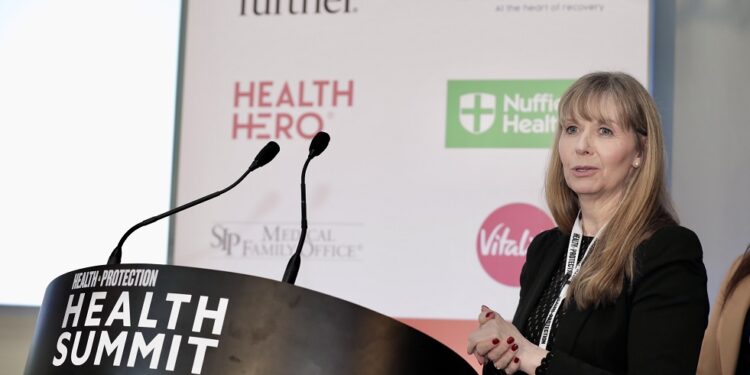Advisers have been urged to ensure they encourage customers to check their medical history, really explain how private medical insurance (PMI) works and not veer into influencing if they are engaging in a non-advised sale.
Speaking at Health & Protection’s Health Summit at Tylney Hall Hotel, the Financial Ombudsman Service (FOS) addressed some of the topics advisers need to talk to consumers about at the point of sale to guard against complaints being brought against them.
This, the regulator emphasised, was also important in preventing complaints at claims stage.
Shamalia Hussain, ombudsman manager at the FOS, emphasised the importance of consumers understanding the impact of their medical history on heaslth insurance cover.
“Remind consumers to check their medical history if they’re not sure, if their spouse is confused, by asking their GP for a copy of their medical notes, that would be helpful,” Hussain told delegates.
“There are some complaints from consumers where they say, ‘well, they should have told me to get my medical history and should have spoken to my GP.'”
But Hussain also touched on rapport building and basic influencing, which can be a problem if it is a non-advised sale.
“A lot of these sales calls that we listen to the advisers are very friendly, very helpful,” Hussain continued.
“But that veers into overfriendliness, becoming your best friend and actually influencing the consumer to buy something they might not have done. And also that could veer into having an advised sale.
“If it’s supposed to be a non-advised sale we would look into how much advice did you give? And did you ask the right questions.
“And finally, how health insurance works in practice that factors in all the different clauses, terms and conditions.
“So just making sure all the information given is correct and if not, find out what that might be.”
Communcation failings and policy understanding
And when it comes to complaints about PMI claims, fellow speaker ombudsman leader Sian Brightey (pictured) told delegates that these often related to communication failings.
“When you think about consumers, you talk about these two groups – covered by their employer or self-funding,” Brightey said.
“And I think on the self-funding side what we see is consumers don’t know what they need. The NHS protects us from understating the costs so they might think £500 of consultation benefit is plenty.
“And actually we know that really is quite low value if you’ve got an ongoing problem or condition.”
Turning to group PMI cover, Brightey added that often employees do not know what their policy covers.
“They assume actually things are covered that maybe aren’t so I think it is that communication right through that journey, it’s asking the right questions.
“It’s testing and really thinking about what do I need to know before I sell this policy? What do I need to ask this person to make sure they are buying the right policy for them.
“So I think the communication is that big wrapround that we can all do better and we also recognise that we are talking about two different people who have come into the conversation with different levels of knowledge.”






